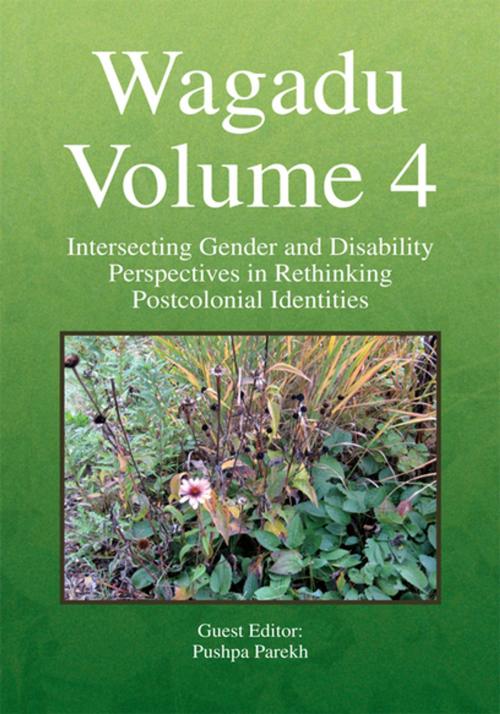Wagadu Volume 4
Intersecting Gender and Disability Perspectives in Rethinking Postcolonial Identities
Nonfiction, Social & Cultural Studies, Social Science, Gender Studies, Reference & Language, Education & Teaching| Author: | Pushpa Parekh | ISBN: | 9781465331601 |
| Publisher: | Xlibris US | Publication: | August 15, 2008 |
| Imprint: | Xlibris US | Language: | English |
| Author: | Pushpa Parekh |
| ISBN: | 9781465331601 |
| Publisher: | Xlibris US |
| Publication: | August 15, 2008 |
| Imprint: | Xlibris US |
| Language: | English |
This volume of Wagadu: A Journal of Transnational Womens and Gender Studies launches its second printed edition. Wagaduthe Soninke name of the Ghana Empirecontrolled the present-day Mali, Mauritania and Senegal and was famous for its prosperity and power from approximately 300-1076 CE. It constituted the bridge between North Africa, the Mediterranean and Middle Eastern worlds and Sub-Saharan Africa. Ghana gave birth to the two most powerful West African Empires: Mali and Songhay. The modern country of Ghana (former British Gold Coast) derives its name from the Ghana Empire. Why Wagadu? Wagadu has come to be the symbol of the sacrifice women continue to make for a better world. Wagadu has become the metaphor for the role of women in the family, community, country, and planet. Duna taka siro no yagare npale The world does not go without women. This volume investigates the intersecting perspectives, grounded in or emanating from theoretical, discursive as well as experiential frameworks and positions specific to gender, disability and postcoloniality.
This volume of Wagadu: A Journal of Transnational Womens and Gender Studies launches its second printed edition. Wagaduthe Soninke name of the Ghana Empirecontrolled the present-day Mali, Mauritania and Senegal and was famous for its prosperity and power from approximately 300-1076 CE. It constituted the bridge between North Africa, the Mediterranean and Middle Eastern worlds and Sub-Saharan Africa. Ghana gave birth to the two most powerful West African Empires: Mali and Songhay. The modern country of Ghana (former British Gold Coast) derives its name from the Ghana Empire. Why Wagadu? Wagadu has come to be the symbol of the sacrifice women continue to make for a better world. Wagadu has become the metaphor for the role of women in the family, community, country, and planet. Duna taka siro no yagare npale The world does not go without women. This volume investigates the intersecting perspectives, grounded in or emanating from theoretical, discursive as well as experiential frameworks and positions specific to gender, disability and postcoloniality.















